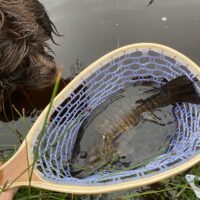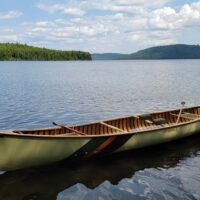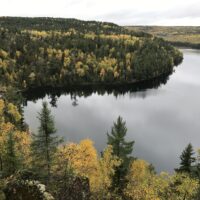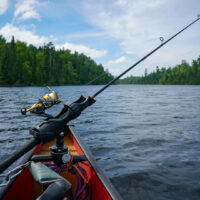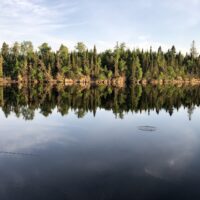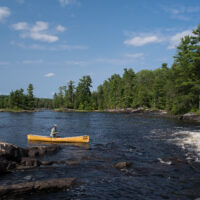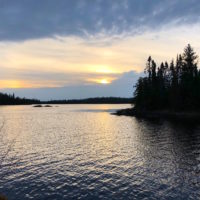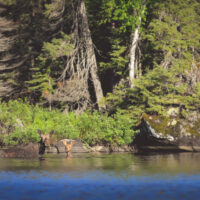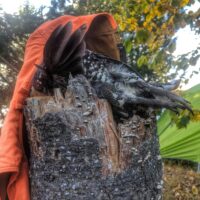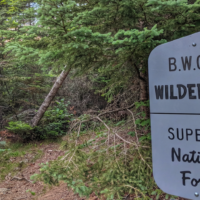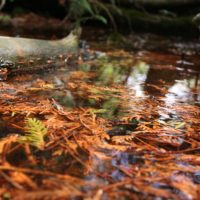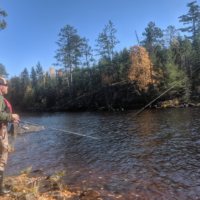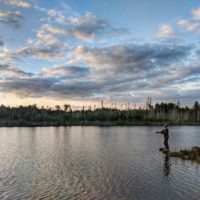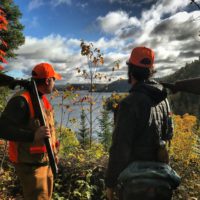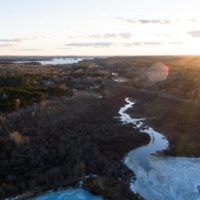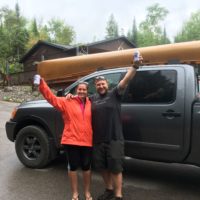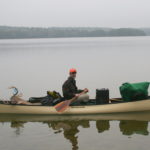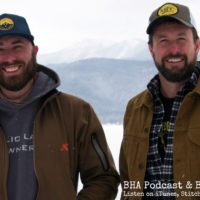2023 Was A Big Year
December 26, 2023 11:23 am2023 was highlighted by the Biden Administration’s decision to withdraw sensitive BWCA federal lands from mineral leasing for 20 years. SFBW is incredibly thankful to all who helped secure this landmark decision!
Administrative Action. On January 26th, 2023, Interior Secretary Deb Haaland cemented historic protections for the Boundary Waters by signing an order to withdraw approximately 225,504 acres of public land in the Rainy River Watershed of Northeast Minnesota from federal mineral leasing for 20 years. The mineral withdrawal order will now ban federal hardrock mineral leasing upstream of the Boundary Waters and Voyageurs National Park. In addition to the BWCA, protections were included in Bristol Bay and the Tongass National Forest.
Minnesota State Administrative Action. On September 22nd, 2023, Franconia Minerals LLC submitted an exploration plan to the Minnesota Department of Natural Resources for review. As of October 30th, having reviewed the plan and taken stakeholder input into account, the Minnesota DNR has approved Franconia’s exploratory permits with some minor provisions. Here is additional information about Franconia Metals, exploratory boring, and Sportsmen for the Boundary Waters’ ongoing work to oppose a copper-nickel mine in the Rainy River watershed.
Minnesota State Legal Action. A May 31st, 2023, decision issued by the Minnesota Department of Natural Resources declined to issue a broader decision declaring state lands in the watershed of the Boundary Waters off-limits to copper-nickel mining. This announcement limits the actions that the state agency can undertake to permanently protect the Boundary Waters watershed. The DNR acknowledged that copper-nickel mining poses significant long-term risks to the Boundary Waters watershed and recommended that the state legislature consider additional measures to protect the Wilderness Area.
Federal Legislation. On January 31st, 2023, U.S. House Rep. Betty McCollum (D-MN) reintroduced The Boundary Waters Wilderness Protection and Pollution Prevention Act in the 118th Congress. This critical legislation was first introduced by a bipartisan group of elected officials in the House of Representatives in January 2020 as H.R. 5598 and then reintroduced in April 2021 as H.R. 2794. Now reintroduced as H.R. 668, Rep. McCollum’s bill would create permanent protection for the Boundary Waters from any future sulfide-ore copper mining mineral leasing in the Rainy River Watershed of the Superior National Forest while exempting sand, gravel, granite, iron ore, and taconite mining. The bill would also allow continued use of the Superior National Forest for ongoing mining and logging operations. These are critical distinctions for the Iron Range of Northern Minnesota. Our ongoing goal is to bolster bipartisan support for this legislation.
On May 17th, 2023, Rep. Pete Stauber’s bill H.R. 3195 The Superior National Forest Restoration Act, which was introduced a week earlier, passed the House Natural Resources Committee and now awaits a House Floor vote. This legislation would rescind the Public Land Order for the federal 20-year mineral withdrawal and reinstate permits and mineral leases in the Superior National Forest. SFBW will be working into 2024 to ensure this bill stalls in Congress.
State Legislation. In partnership with the Minnesota Chronic Wasting Disease Coalition, we urged lawmakers to support critical Chronic Wasting Disease (CWD) management improvements proposed in Minnesota Environment Omnibus Bills HF 2310 and SF 2438, which contained multiple provisions that tighten regulations concerning captive deer herds in an effort to curb the spread of CWD in Minnesota and would protect the cultural and economic value of deer hunting for Minnesota’s future generations. On May 18th, many of the provisions we advocated for passed into law, including a permanent moratorium on new cervid farms, creating improved protections for Minnesota’s deer hunting heritage and wild deer herds from the spread of CWD.
Just past the new year, Representative Feist and Senator Morrison introduced HF 329 and SF 167: The Boundary Waters Permanent Protection Act. This legislation addresses the need for Boundary Waters protection at the state level from proposed sulfide-ore copper mining in its watershed. This bill would ban sulfide-ore copper mining on state land and prohibit the issuance of new state permits, licenses, or leases for sulfide-ore copper mining in the Rainy River Watershed, essentially mirroring at the state level what H.R. 668 does at the federal level.
On the heels of the announced 20-year mineral withdrawal, the vital versions of the BWCA legislation at both the state and federal levels represent the final step towards ensuring Boundary Waters protection in perpetuity from sulfide-ore copper mining for future generations of hunters, anglers, and paddlers. Both versions of the bill are in need of bipartisan support.
What’s next at Sportsmen for the Boundary Waters?
Our work to permanently protect the Boundary Waters through legislative action will continue to be the organization’s primary focus. However, with 2023 starting off with a 20-year moratorium on mineral leasing federal lands surrounding the Boundary Waters, SFBW has had time to focus on new and existing conservation issues that deserve our attention. Through meetings with local and federal officials, we have highlighted certain areas of concern and are building programs to engage on these fronts.
The Midwest has seen a continued surge in the spread of Chronic Wasting Disease (CWD). However, the Boundary Waters Canoe Area Wilderness and its surrounding ecosystems have yet to see a positive case. Through participation in a state coalition of stakeholders, SFBW will continue to encourage legislation that prevents new cases in Minnesota deer, work with state agencies on preventative measures, and assist MN DNR in educating hunters on the importance of CWD testing.
Additionally, SFBW will continue to study and support efforts to manage the dwindling populations of moose in Minnesota, work with fisheries managers to protect the safe haven that the BWCA has become for cold-water fish like Lake Trout and their forage, and launch new campaigns based around wilderness stewardship projects and principles. As many of our partner organizations know, access to the places we protect is paramount to conservation work. In 2024, SFBW will be working directly with local wildlife managers to create significantly improved access to a Wildlife Management Area that will unlock access to thousands of state and federal public lands and improve habitat for white-tailed deer.
Over the years, SFBW has worked with a broad coalition of conservation organizations, outdoor businesses, and supporters across the country. We’re proud to have strong relationships that we continue to build upon. Our shared work with state and national conservation partners is why we’ve been able to make the impact we have on Boundary Waters and greater Quetico Superior Region conservation protections.
Categorised in: Blog, Fishing, Hunting, News, Partnerships, Updates























